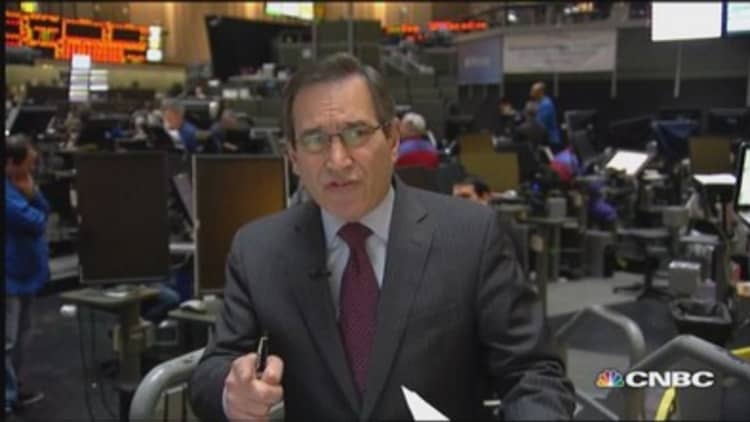
U.S. housing starts plunged to their lowest level in a year in February likely as harsh weather kept building crews at home, in the latest indication that the economy hit a soft patch in the first quarter.
Groundbreaking tumbled 17 percent to a seasonally adjusted annual pace of 897,000 units, the lowest level since January 2014, the Commerce Department said on Tuesday.
January's starts were revised up to a 1.08 million-unit pace from the previously reported 1.07 million-unit rate. February's decline was likely a temporary setback for housing as permits for future construction rose 3 percent last month.
Permits have been above a 1 million-unit pace since July.
"A weak first quarter is now a virtual guarantee as yet another cold winter is dampening activity," said Dan Greenhaus, chief strategist at BTIG in New York.
Bad weather, a strong dollar, weaker overseas growth and a now-settled labor dispute at the West Coast ports have put a damper on economic activity in recent months, casting doubts on an anticipated June interest rate hike from the Federal Reserve.
Still, Fed officials, who were due to start a two-day policy meeting on Tuesday, are expected to drop the phrase "patient" from their so-called forward guidance on interest rates.
Read MoreHome builder confidence falls in March—again
Last week, economists cut their first-quarter GDP growth estimates to as low as a 1.2 percent annualized pace in the wake of a weak February retail sales report. The economy grew at a 2.2 percent rate in the fourth quarter.
U.S. Treasury debt prices extended gains on the housing starts data, while the dollar trimmed losses against the euro and the yen.
February's decline pulled starts below the one million-unit threshold for the first time since last August. Economists had forecast groundbreaking at a 1.05 million-unit pace in February.
Snowy and cold weather conditions gripped much of the country in the second half of February. Housing starts were down 3.3 percent compared to February last year.
"We saw broad-based weakness across the country with the biggest declines in the Northeast and Midwest, suggesting that harsh winter weather in these regions slowed new residential construction significantly," said Derek Lindsey, an analyst at BNP Paribas in New York.
"Despite the disappointing print in starts, building permits rose and remain on an upward trend, suggesting this soft patch in construction is likely to be temporary."
Groundbreaking plunged 56.5 percent in the Northeast to the lowest level since January 2009. Starts in the Midwest dropped 37 percent to a year low.
In the West, groundbreaking activity fell 18.2 percent. Starts in the South, where most of the home building takes place, slipped 2.5 percent.
But the step back in housing starts is likely to be short-lived. A rapidly tightening labor market is expected to push up wage growth and encourage more young adults to move out of their parents' basements and set up their own homes.
Read MorePay top dollar, live in a dorm? The growth of 'micro apartments'
Already in the fourth quarter, household formation was accelerating, breaking above the one-million mark that usually is associated with a fairly healthy housing market.
While much of the gain in households will go into rentals, that will still be a boost to housing starts this year.
Last month, single-family homes groundbreaking, the largest part of the market, declined 14.9 percent to its lowest level since last June.
Groundbreaking for the multi-family homes segment dived 20.8 percent.
Improving household formation and the lowest rental vacancies in more than two decades should boost multi-family starts this year.
Single-family permits fell 6.2 percent last month to a nine-month low. Multi-family permits surged 18.3 percent.

